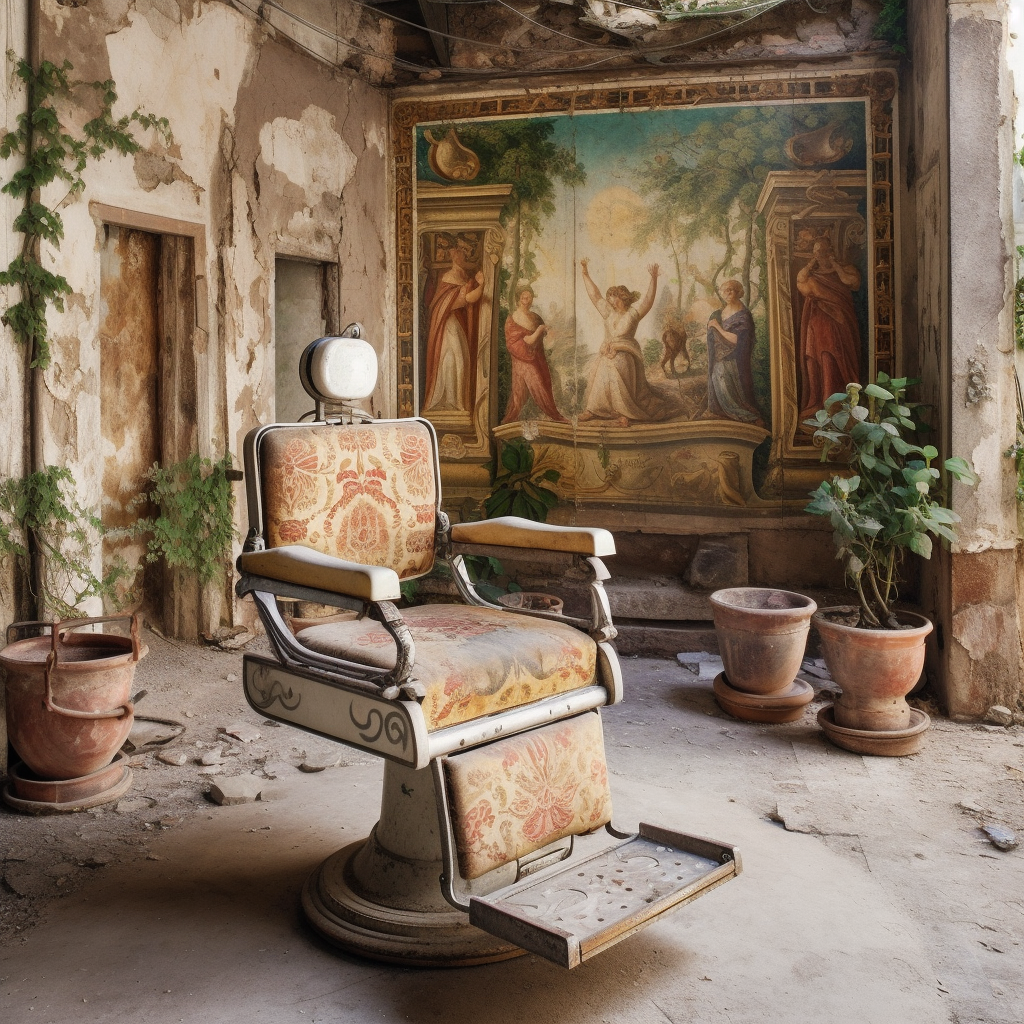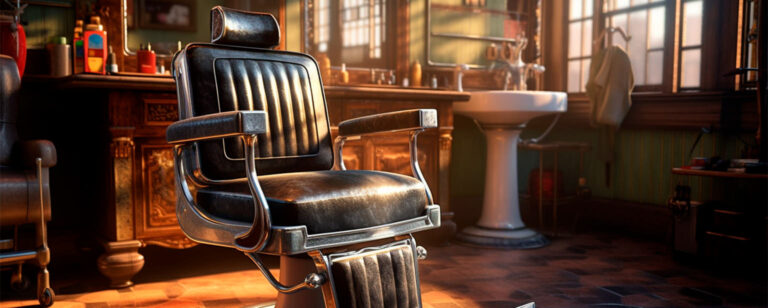The origins of the barber chair
The journey of the barber chair begins in a time and place that might surprise many: ancient Egypt. Here, barbers were not mere stylists, but were considered “priests of the beard“. Egyptian barbers were responsible for the care and appearance of the beards of nobles and royals, and their skill and knowledge in the art of barbering granted them an important status in the court of the pharaohs.
The barber chair in ancient Egypt
Back then, barber chairs were simple chairs with cushions to accommodate clients. These chairs were similar to a saddle, but with additional cushions for comfort. The first barber chairs were very large and heavy, and were not very easy to move. However, despite their simplicity, these chairs fulfilled their function and allowed barbers to perform their work effectively.
Evolution of the design
As centuries passed, the design began to evolve. Barbers in ancient Greece and Rome improved the design of barber chairs, adding higher backrests and sturdier legs. These chairs were more comfortable and durable, and allowed barbers to work more efficiently.
Importance in Egyptian culture
The importance in Egyptian culture cannot be underestimated. Barber chairs were not only an essential tool for barbers, but they were also a symbol of status and power. Egyptian pharaohs and nobles took pride in their well-groomed beards, and the barber chair was an essential element in this personal care ritual.
Influence of the barber chair on other cultures
The influence of the Egyptian spread to other cultures over the centuries. Barbers in ancient Greece and Rome adopted and improved the design of the barber chair, and it became a common element in barbershops of these cultures. As barbering became a more respected and developed trade, the barber chair became an increasingly important tool.
Today
In summary, has its roots in ancient Egypt, and its evolution over the centuries reflects the evolution of barbering as a trade and as an industry. Although have changed greatly since the days of ancient Egypt, their importance and role in barbering remain as relevant today as they were then.




